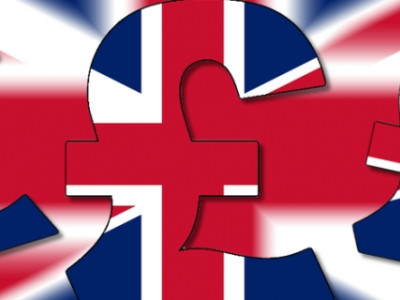The Scottish Cabinet Secretary for Health and Social Care has released a consultation document that contains a number of severe inaccuracies. It states: “Studies have shown a potential link between use of e-cigarettes containing nicotine and the development of lung diseases such as chronic obstructive pulmonary disease (COPD).”
Then it conflates ever-tried with regular use by adding: “The number of 13 year old non-smokers who have tried vapes had increased from 13% to 15% and for 15 year olds who are non-smokers it rose from 24% to 28%. This suggests that young people are finding these products to be attractive.”
This statement ignores annual findings from Action on Smoking and Health and Cancer Research UK.
It claims, “while vaping products do not contain tobacco, which produces tar and carbon monoxide – two of the most harmful constituents in tobacco smoke – they do contain some of the harmful chemicals and toxicants found in combustible cigarettes. These include heavy metals like nickel and lead” – ignoring the relative quantities and reduced harm of vaping.
The paper states, “that vapes should be seen as a method for stopping smoking rather than a lifestyle product.”
The Scottish government is proposing to ban:
- advertising these products on billboards, advertising hoardings, buses and other vehicles, through distributing leaflets and flyers, and placing adverts on moving video apparatus;
- distributing free or cut-price samples; and
- sponsoring an activity, event or person.
It justifies this approach as the World Health Organisation is opposed to vaping and that “there are mixed views among academics, health professionals and scientists about the amount of harm these products could pose to human health”.
The government harps back to a statement made about nicotine by the Royal College of Physicians (RCP) in 2000. It completely ignores the papers released by the RCP supporting vaping such a this and this.
The most recent RCP report states:
- E-cigarettes are not a gateway to smoking – in the UK, use of e-cigarettes is limited almost entirely to those who are already using, or have used, tobacco.
- E-cigarettes do not result in normalisation of smoking – there is no evidence that either nicotine replacement therapy (NRT) or e-cigarette use has resulted in renormalisation of smoking. None of these products has to date attracted significant use among adult never-smokers, or demonstrated evidence of significant gateway progression into smoking among young people.
- E-cigarettes and quitting smoking - among smokers, e-cigarette use is likely to lead to quit attempts that would not otherwise have happened, and in a proportion of these to successful cessation. In this way, e-cigarettes can act as a gateway from smoking.
- E-cigarettes and long-term harm - the possibility of some harm from long-term e-cigarette use cannot be dismissed due to inhalation of the ingredients other than nicotine, but is likely to be very small, and substantially smaller than that arising from tobacco smoking. With appropriate product standards to minimise exposure to the other ingredients, it should be possible to reduce risks of physical health still further. Although it is not possible to estimate the long-term health risks associated with e-cigarettes precisely, the available data suggest that they are unlikely to exceed 5% of those associated with smoked tobacco products, and may well be substantially lower than this figure.
Professor John Britton, chair of the RCP’s Tobacco Advisory Group, said: “This report lays to rest almost all of the concerns over these products, and concludes that, with sensible regulation, electronic cigarettes have the potential to make a major contribution towards preventing the premature death, disease and social inequalities in health that smoking currently causes in the UK.”
We Vapes’ Mark Oates called the Scottish government’s proposals as “nonsensical” and “dangerous”.
He stated the move, “could ultimately contribute to the death of even more smokers in Scotland and make the country’s 2030 smoke free target unachievable. Throughout the paper, the government accepts vaping is twice as effective as any other means of quitting smoking, then goes on to tell us why we should ban telling people about it.
“It also acknowledges evidence from the British Medical Association and NHS Scotland, who both state vaping should be highly encouraged as a quitting tool, then ignores it and quotes the World Health Organisation’s warped and unscientific view vaping is as bad as smoking tobacco. We know this is simply wrong.”
Dave Cross
Journalist at POTVDave is a freelance writer; with articles on music, motorbikes, football, pop-science, vaping and tobacco harm reduction in Sounds, Melody Maker, UBG, AWoL, Bike, When Saturday Comes, Vape News Magazine, and syndicated across the Johnston Press group. He was published in an anthology of “Greatest Football Writing”, but still believes this was a mistake. Dave contributes sketches to comedy shows and used to co-host a radio sketch show. He’s worked with numerous vape companies to develop content for their websites.
Join the discussion
Parliament Fears Two
The Department for Environment, Food and Rural Affairs faced questions from a Conservative MP and, oddly, a member of the Department for Environment, Food and Rural Affairs
Harm Reduction For The Rich
The United Kingdom risks becoming a harm reduction country only for the wealthy, according to Michael Landl of the World Vapers’ Alliance
Sacrificing Health For 2p Cut
Tory Government alienates vaping voters with its mission to cut tax by an unaffordable 2p to attract voters by placing a tax on vape products in the forthcoming budget
Scotland Announces Single-Use Vape Action
A ban on the sale and supply of single-use vapes in Scotland is due to come into effect on 1 April 2025, under proposed legislation published today












